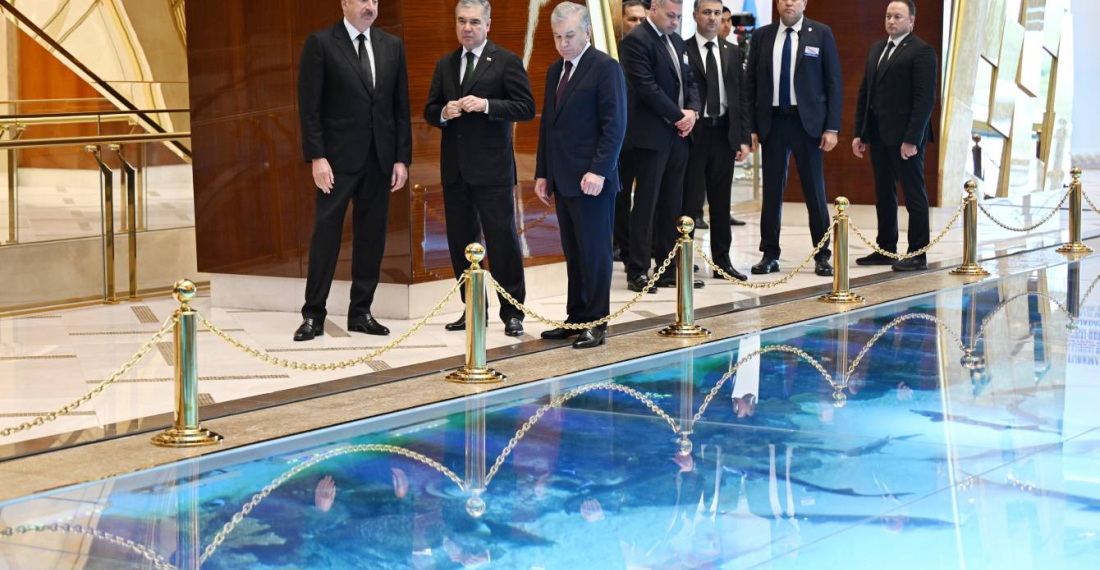Turkmenistan, Azerbaijan, and Uzbekistan held important trilateral meetings in the Turkmen city of Turkmenbashi on Friday, 22 August. Joint development of deposits on the Caspian shelf and cooperation in the field of energy exports, including renewable sources, were discussed.
The talks came in the framework of the visit to Turkmenistan of President Ilham Aliyev of Azerbaijan and President Shovkat Mirzizoyev of Uzbekistan who were hosted by the Chairman of the Halk Maslahaty (Senate) of Turkmenistan, Gurbanguly Berdimuhamedov, who is a former president and the father of the current president, Serdar Berdimuhamedov.
Azerbaijani media noted that during the meeting Uzbekistan hailed a scheme to export green electricity to Europe as promising, while Turkmen officials signaled a new openness to ideas long discussed in Brussels and Ankara, to build a Trans-Caspian gas pipeline, a project that has been under discussion for more than 30 years.
The Azerbaijani news portal haqqin.az noted that the idea of a 338-kilometer pipeline from Turkmenbashi to Baku with a capacity of pumping 30 billion cubic meters of gas per year has been under discussion for a long time. But in the last 5 years, a 78-kilometer connecting section with a capacity of 5 to 10-12 billion cubic meters of gas per year has been proposed as a more feasible project, including by American companies.
A source in the fuel and energy sector told haqqin.az that this short gas pipeline could go to the gas compressor station of Azerbaijan's key fields - ACG and Shah Deniz, but it is necessary to understand who wants to finance such a project. For now, interest in this old but updated idea is cautious the website writes.
source: commonspace.eu with agencies
photo: In their meeting the leaders of Turkmenistan, Azerbaijan and Uzbekistan discussed the Caspian Sea. Here they discuss a fish pond. (picture courtesy of the press service of the president of Azerbaijan).







